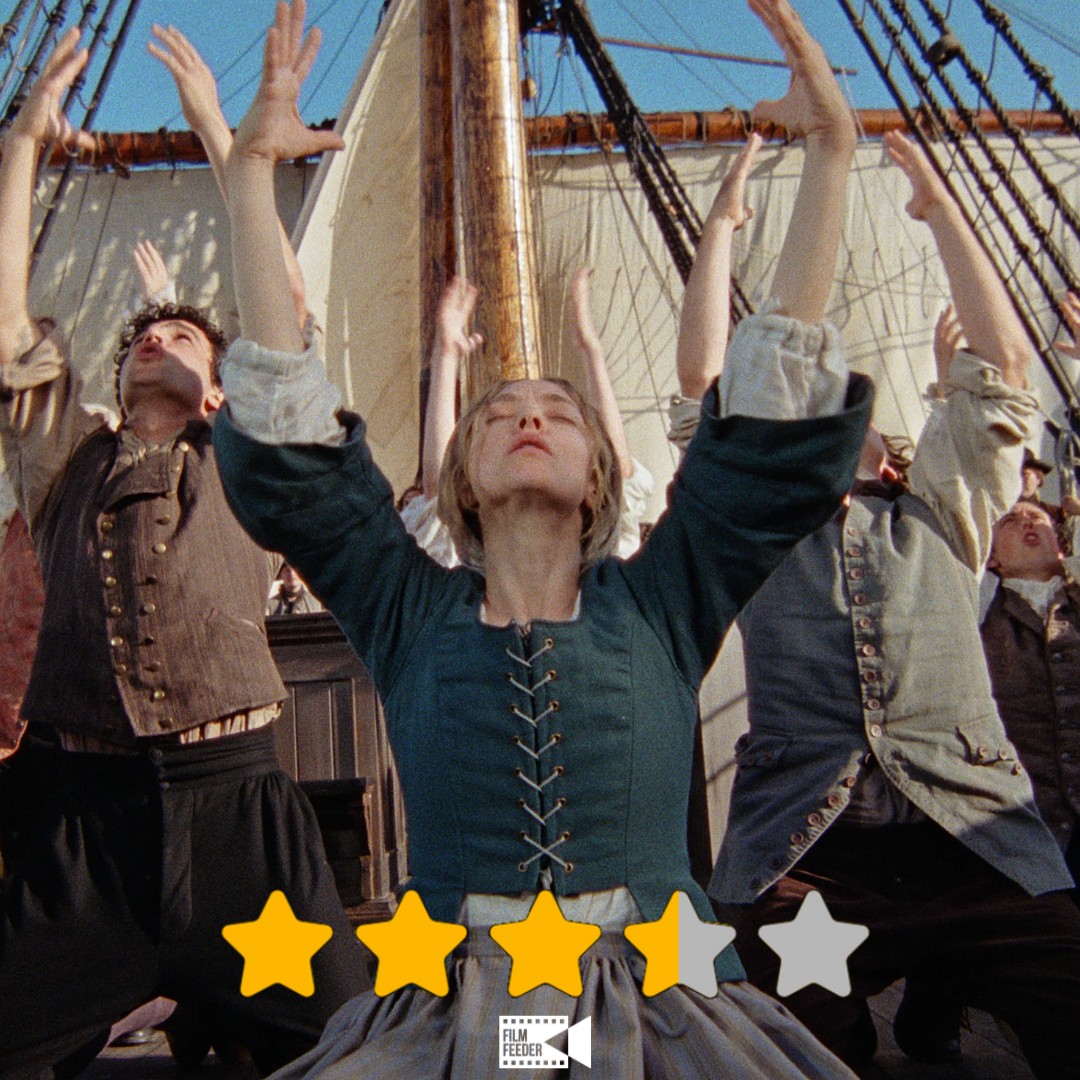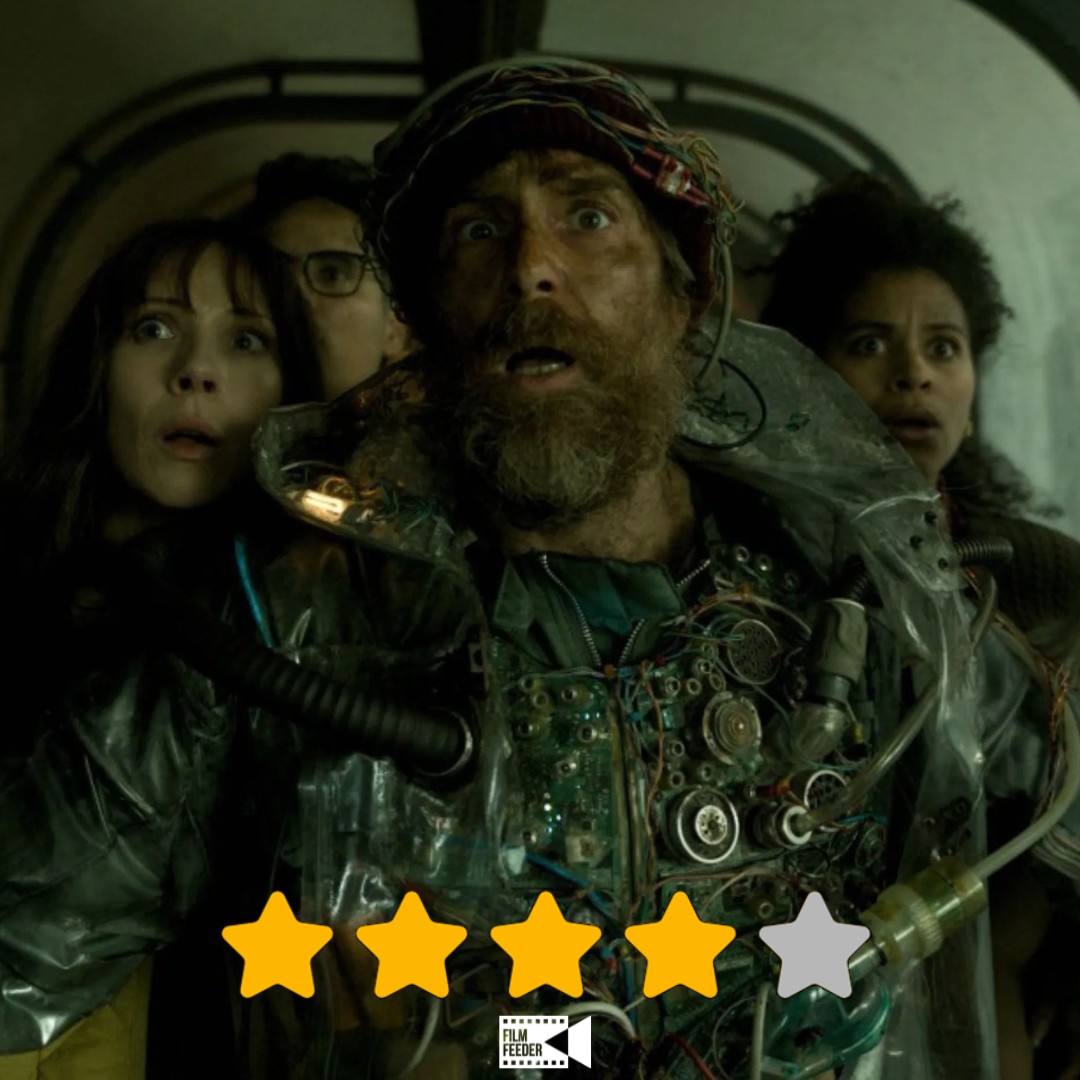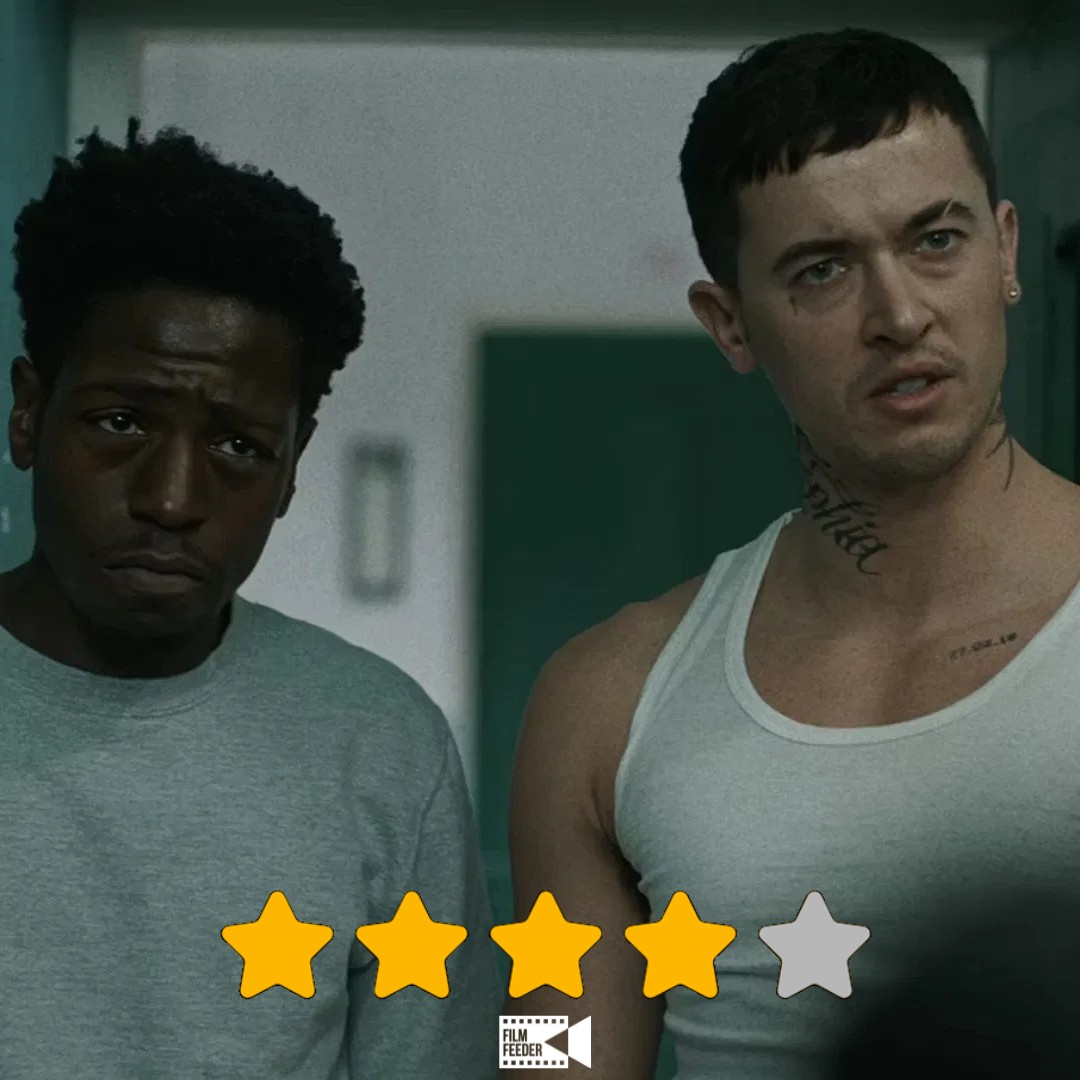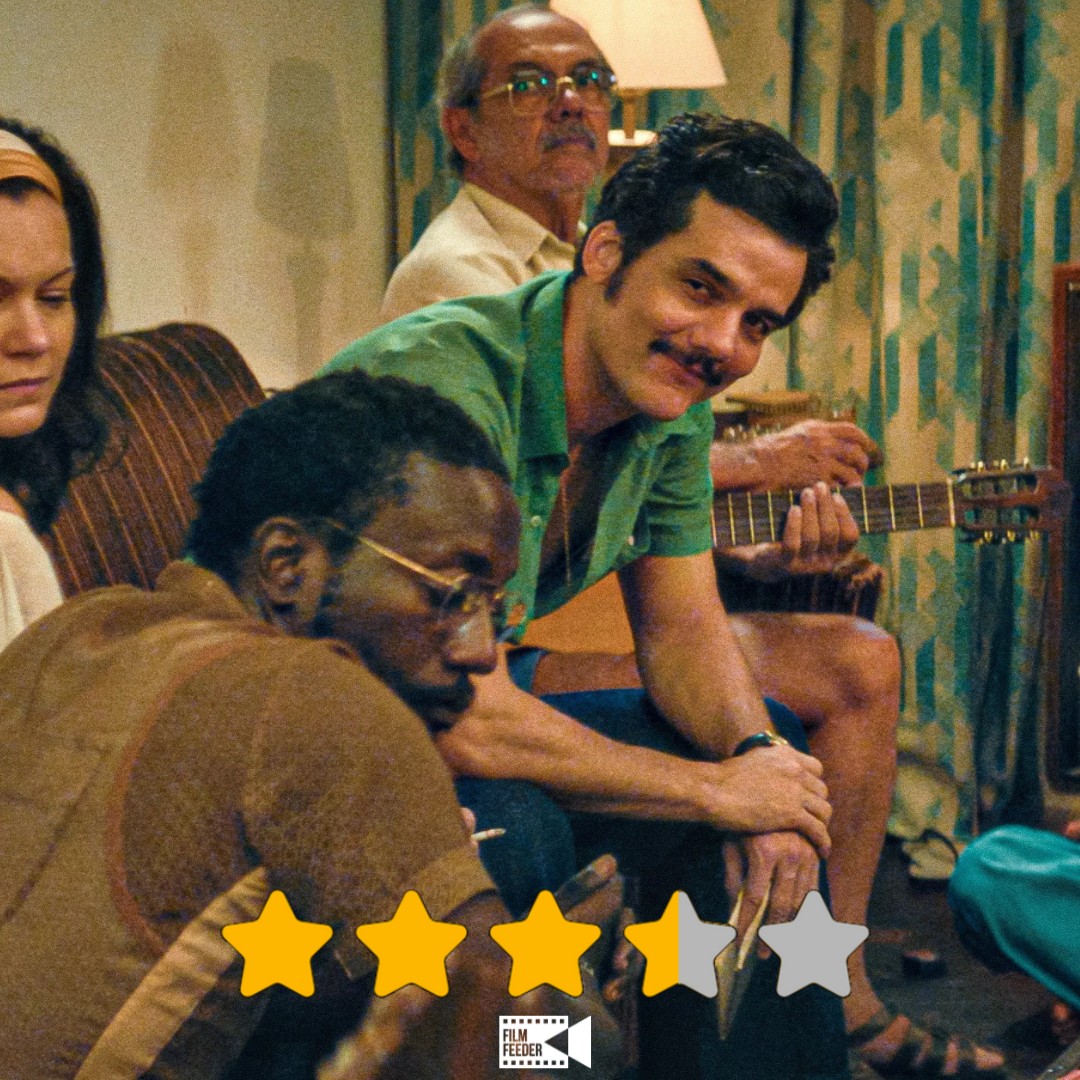
On Becoming a Guinea Fowl (2024, dir. Rungano Nyoni)
Certificate: 12A
Running Time: 99 mins
UK Distributor: Picturehouse Entertainment
UK Release Date: 6 December 2024
WHO’S IN ON BECOMING A GUINEA FOWL?
Susan Chardy, Elizabeth Chisela, Henry B.J. Phiri, Roy Chisha, Benson Mumba, Norah Mwansa, Esther Singini, Doris Naulapwa, Mary Mulabo, Blessings Bhamjee
WHO’S BEHIND THE CAMERA?
Rungano Nyoni (director, writer), Tim Cole, Ed Guiney and Andrew Lowe (producers), Lucrecia Dalt (composer), David Gallego (cinematographer), Nathan Nugent (editor)
WHAT’S IT ABOUT?
Dark secrets emerge during a Zambian family funeral…
WHAT ARE MY THOUGHTS ON ON BECOMING A GUINEA FOWL?
In a slight blow to anyone expecting the A24-backed On Becoming a Guinea Fowl to go the full A24 and make its title literal, the titular guinea fowl of writer-director Rungano Nyoni’s quietly powerful new feature (following up her BAFTA-winning debut I Am Not a Witch) is more metaphorical in nature than it is supernatural. But just because nobody turns into such a creature in the film – at least, not physically – doesn’t mean that it has no bearing on the story being told.
The creature, as described at one point in the film, has the ability to emit loud screeches to warn other animals of oncoming predators. Not only does this aptly describes the dark drama at the heart of the film, but Nyoni, in her own vibrant and occasionally humorous manner, also takes that concept and use it to examine a deeply damaged set of characters that are grappling with their shared trauma. The filmmaker’s findings are, like with her debut feature, decisively anger-inducing as well as deeply tragic, and nothing short of fascinating in its use of filmic language.
Set in Zambia, the film opens on a dark night as Shula (an excellent Susan Chardy) is driving home from a costume party – dressed as Missy Elliott from her music video for “The Rain”, draped in sparkly headgear and an inflated body suit – when she comes across a dead body in the middle of the road. She recognises it as her uncle Fred (Roy Chisa), but the sight of seeing her close relative lying lifeless on the ground elicits no reaction from her, not even a facial twitch to convey sadness. Instead, she calmly waits in her car for the police to show up, soon joined by her drunken cousin Nsansa (a scene-stealing Elizabeth Chisela) whose own reaction to her uncle’s corpse is just as nonchalant, and not necessarily because of the alcohol.
So begins, much to Shula’s frustration, an elongated funeral process where several family members gather to mourn Fred, all sleeping together on the living room floor for days on end with Shula being tasked – forced, even – by her domineering aunts to play host. But unlike all their wailing relatives, Shula, Nsansa, and fellow cousin Bupe (Esther Singini) have little reason to grieve, since it becomes clear very early on that Fred committed several heinous acts of abuse towards them during their childhood, a fact that nobody else around them is willing to either talk about or even acknowledge.
Nyoni presents an all-too universal scenario in On Becoming a Guinea Fowl: a group of women, united by victimhood at the claws of a predator, struggling to speak up – or screech, as per the guinea fowl metaphor – about what they endured and who was responsible, to a crowd so enamoured with the perpetrator that they flatly refuse to listen. On top of that, the filmmaker pins part of the blame on said crowd, i.e. the various other family members, and their forceful ignorance of the cold, hard facts that has essentially enabled the predator to keep at it. This family, particularly these aunts, almost feels like a mafia, to where they actively strongarm Shula and her cousins into silence via emotional manipulation, and take control of the boiling narrative by encouraging them to simply let sleeping dogs lie. All the while, they vilify anything and anyone that is seen as a threat to their familial unit, particularly Fred’s teenage widow (Norah Mwansa) – whom he clearly abused when she was even younger, as evident from their multiple children, their eldest being seven – whom they torment at every turn, despite having suffered more than enough.
The filmmaker has a striking way of conveying what is never said, for while the crimes of this uncle are clear as day, the psychological turmoil of his now-adult victims are not as immediately apparent. Through steady camerawork by cinematographer David Gallego, as well as both Nathan Nugent’s gentle editing and Lucrecia Dalt’s foreboding score, Nyoni harnesses her own brand of filmic language to show the shared fear among these women, who have surrounded themselves in drink, drugs or simply their work in order to mentally cope with the legacy their uncle has left all over them. The director allows a looming sense of unease, created by Shula’s growing desire to indeed become the guinea fowl and alert everyone of the predator, to grow during scenes set during this grieving period, making it perhaps the tensest funeral since Rachel Sennott’s Shiva Baby, as you’re just waiting for it all to transform underneath the Zambian moonlight into a crock-pot of family tension. It doesn’t quite turn out that way, which for some might feel a little anticlimactic, and it can feel somewhat slow in places, but what we do get is near-perfect for the kind of studious mood piece that Nyoni wants to leave in the minds of her viewers.
Its subject matter is tough to stomach in any situation, but On Becoming a Guinea Fowl manages to address the wider problems surrounding it while still refusing to downplay its impact. It is a compelling, thoughtful and unusual feature that takes strong leaps in its methods of storytelling and presentation, and in doing so sets up Nyoni as a serious filmic voice to pay attention to. Yes, even if the title is a bit of a misdirect for anyone expecting something metaphysical in this A24 movie.
SO, TO SUM UP…
On Becoming a Guinea Fowl is a compellingly told look at shared trauma at the hands of a predator, and the familial forces that had enabled such horrendous acts in the first place, as writer-director Rungano Nyoni harnesses a unique filmic language to silently convey the psychological turmoil of the victims.














0 Comments